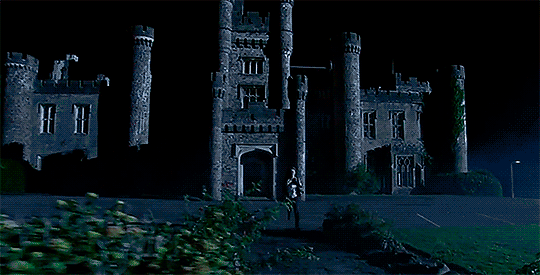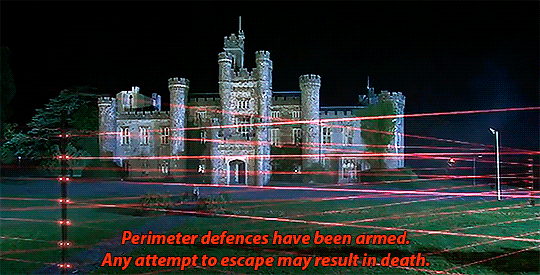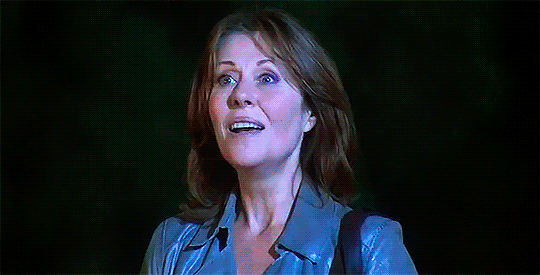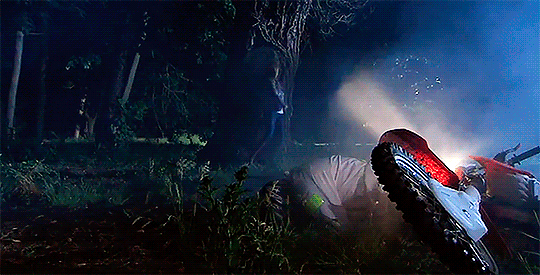#never watched sja in full now catching up
Explore tagged Tumblr posts
Text











#ok she is badass#this show is silly and for that i love it immensely#dwedit#the sarah jane adventures#sjaedit#doctor who#timelordgifs#elisabeth sladen#sarah jane smith#mine#my gifs#never watched sja in full now catching up#what a treat really#sarah jane is SERVING.#''mhhm i have given away my son 'cause he may have had real parents all this time''#''however this did NOT affect me in any way''#''gonna go break into guarded facility and uh blow up the motorcyclist i guess''#great coping mechanisms sarah jane
248 notes
·
View notes
Note
If I can still offer suggestions for the "things I'd like to see you write" ask meme: Starfleet chaplain Father Brown. What Holmes was really up to during retirement. And I'm still curious about the "RTD doesn't understand hobbits" meta you mentioned ages ago.
Thank you!
I will say that I do not feel remotely qualified to write Starfleet chaplain Father Brown, but I love that concept so much... I do definitely want to read it.
---
I do want to develop a theory I can stand by on Holmes’ retirement!! Currently I am trying to restrict myself to things that could fit into canon without too obviously catering to my tastes specifically. :P (I have an answer that fits my Modern Holmes AU, but that incorporates fantasy/supernatural elements, and I don’t want to make those essential to any of the original Canon as it lives in my head. It’s hard to articulate the distinction, but it’s there.)
---
...So. I started to write some bullet points for that essay, and...here it is. Or at least here’s a decent first draft. I have’t watched any 10 in a while, so it’s not as well-sourced as I’d like, but it’s here!
(WARNING: Anti-RTD content ahead. If you’re a fan of his era, maybe just scroll past this post.)
So, the essence of hobbit-ness is that
they love the mundane, prosaic and ordinary with a deep love,
this love is not incompatible with a love for the extraordinary, the wondrous, or adventures,
the best and strongest heroes are motivated by their love for the ordinary,
you don’t have to be cool or special or Set Apart to be a hero, you just have to do the job in front of you and keep doing it.
RTD’s era occasionally pays lip service to these ideas, but on a deeper level consistently goes against them.
His companions often dislike their normal lives (Rose in particular), and certainly think them inferior to TARDIS life.
Ordinary people who are content with ordinary lives are often portrayed as comical, small-minded, less worth taking seriously: see Jackie, and post-memory-wipe Donna, who we’re supposed to feel is jarringly diminished by having lost memories of the TARDIS even though she is still herself.
Our heroes are often separated from what they’re fighting for, sometimes in a tragic Frodo-ish way but also, often, because they seem to care more for the fight than the cause: see Rose and 10 treating Queen Victoria like a fun tourist attraction instead of a real actual person (I can absolutely see why she got fed up with them). The narrative is more likely to dismiss the great mass of people the Doctor just saved than to show us that, “Wow, they were so absolutely worth it.”
The human characters become Cool and Real Heroes in direct proportion to how much they are distanced from their roots and made like the Doctor. This is particularly evident in S4, with Rose appearing in a leather jacket spouting technobabble (I’ve seen multiple Rose fans highlight those echoes of the Doctor, and I think they’re right to consider it a conscious decision on RTD’s part), and with Donna. DONNA. She gets her Summit of Coolness, when “for one moment, one shining moment, she was the most important woman in the whole wide universe”... and how does she get there? What’s the best Donna’s ever been, according to the show? The DoctorDonna. The absolute best version of Donna RTD could come up with is the one where her self is half-overwritten by the Doctor’s.
A couple moments that I think illustrate these themes especially well:
ROSE: Get up, catch the bus, go to work, come back home, eat chips and go to bed? Is that it? MICKEY: It's what the rest of us do. ROSE: But I can't! MICKEY: Why, because you're better than us? ROSE: No, I didn't mean that. But it was. It was a better life. And I don't mean all the travelling and seeing aliens and spaceships and things. That don't matter. The Doctor showed me a better way of living your life. You know he showed you too. That you don't just give up. You don't just let things happen. You make a stand. You say no. You have the guts to do what's right when everyone else just runs away, and I just can't (Rose runs out of the cafe.)
The idea that “going to work, coming back home” is somehow a downgrade instead of the fundamental beauty and worth of human life is...characteristic, I think. And while Rose does follow that by saying that she “can’t” be normal not because it was “a better life” on account of the adventures, but because it involved making a stand and doing what’s right... that just pushes the fallacy a little deeper, because now she’s saying that you can only make a stand and do what’s right in any meaningful way away from home, as an adventure. That there are no battles to be fought, nothing to fight for, in the course of “going to work, coming back home.”
Then there’s “End of Time”:
WILF: No really, just leave me. I'm an old man, Doctor. I've had my time. DOCTOR: Well, exactly. Look at you. Not remotely important. But me? I could do so much more. So much more! But this is what I get. My reward. And it's not fair! Oh. Oh. I've lived too long.
I know the Doctor follows this by making the sacrifice. But...what kind of hero says things like that out loud? What kind of hero thinks “I ought to live instead of you”? And the thing is...I feel like we’re supposed to feel it’s tragically unjust. We’re supposed to feel the Doctor is worth more, because...what? The man he’s saving won’t live as long as the Doctor would have? The man he’s saving is human?
Those lines should never have been said, because they never should have been presented as a perspective with any validity. The Doctor should have enough love and reverence for life that he jumps to save this life for its own sake, sacrificing himself because he feels Wilf is worth it, and not because he feels the unjust universe is somehow making him do it. That’s not necessary to being a good person, but it is necessary to being the type of hero that the Doctor usually is.
And “School Reunion”:
SARAH: I waited for you. I missed you. DOCTOR: Oh, you didn't need me. You were getting on with your life. SARAH: You were my life. You know what the most difficult thing was? Coping with what happens next, or with what doesn't happen next. You took me to the furthest reaches of the galaxy, you showed me supernovas, intergalactic battles, and then you just dropped me back on Earth. How could anything compare to that? DOCTOR: All those things you saw, do you want me to apologise for that? SARAH: No, but we get a taste of that splendour and then we have to go back.
...I have SUCH conflicted feelings about this episode. On the one hand, I adore Sarah, and K-9, and seeing those reunions, and I really love how much this episode meant to David Tennant, and this basically got us the Sarah Jane Adventures which are way up there on my favorite DW content ever. On the other hand...this is such an injustice to Sarah. They took one of the strongest, most independently adventurous characters in all of Classic Who and reduced her to this...droopy, pining figure, who it’s implied spent the last thirty years moping around because Nothing On Earth Can Compare To The Doctor’s Life! :( :( :(
(And then of course SJA itself proved that wasn’t the case, by presenting her as having a life full of adventures and contacts and importance entirely without the Doctor. Which is part of why I love it--although the other part is that everyday life is presented as precious and important, because she has a kid and the problems of Kids and Family and Parenthood are given full weight. <3 )
In short: I think that, on the whole, RTD’s era expresses his own biases towards believing that Cool Adventures and Special Powers and Being Important are inherently worth more than Normal Life and Normal People and Home--which is the antithesis of everything Tolkien embodied in hobbits and the Shire. It’s also not Chestertonian, incidentally, or Narnian (see Rose’s speech above--there’s a reason the Pevensies had to go home eventually, and learn to see Aslan and His work in their own world).
(It’s not entirely like that, of course, but I feel like even the episodes that revolve around the Doctor being Tragically Unable to have a Normal Life do so by...exoticizing the idea? I dunno. We always know it’s not going to happen, and it’s not supposed to happen, so I feel like it’s always a little hollow. And it’s definitely outweighed, in terms of quantity, by the sheer number of instances where being a normie is completely dismissed.)
So there’s my essay! :P
12 notes
·
View notes